Setting clear goals and objectives is crucial to starting and running a successful business. That is why, on 5 October, we brought together the mentors and mentees of our 2024-25 Mentorship Program for Ethnically Diverse Entrepreneurs for a workshop on goal-setting.
In the second meeting of their six-month journey, the entrepreneurs first engaged in a short discussion prompted by Adnan Riaz, FSI’s Community Business Support Program Associate: “Why are you an entrepreneur and running your own business?”
Sneha Roy and Emeline Sandt, Co-founders and Directors at A Collective Space, said their goal was to provide people with tangible ways to manage their emotions and thoughts. Sneha said, “Traditional talk therapy doesn’t always work for some people. With our services, individuals can still process their emotions, but not just through talking.”
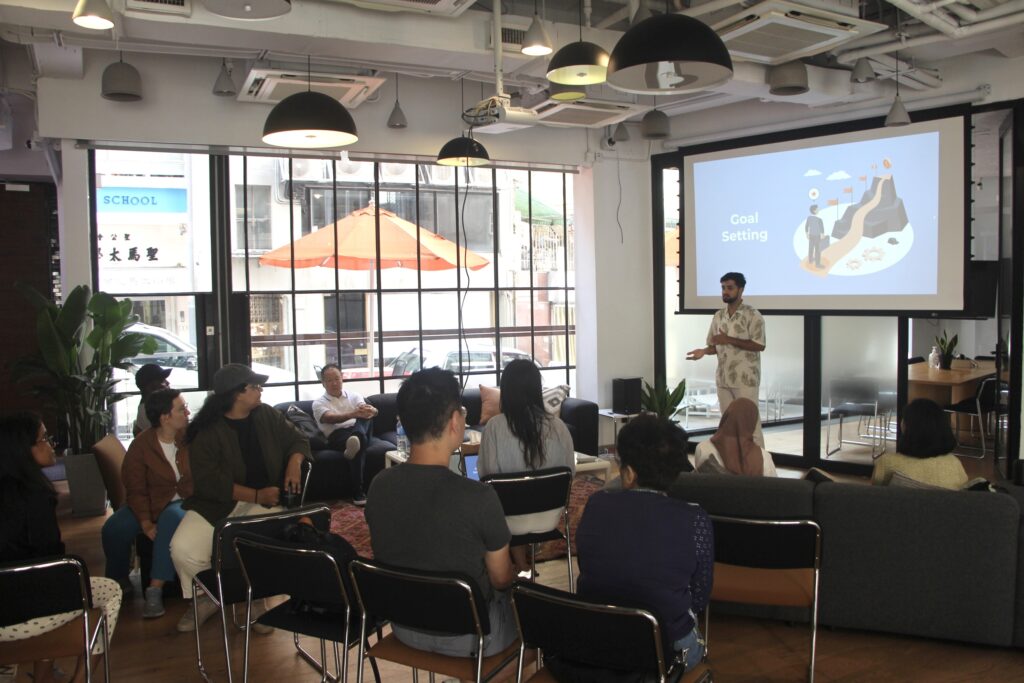
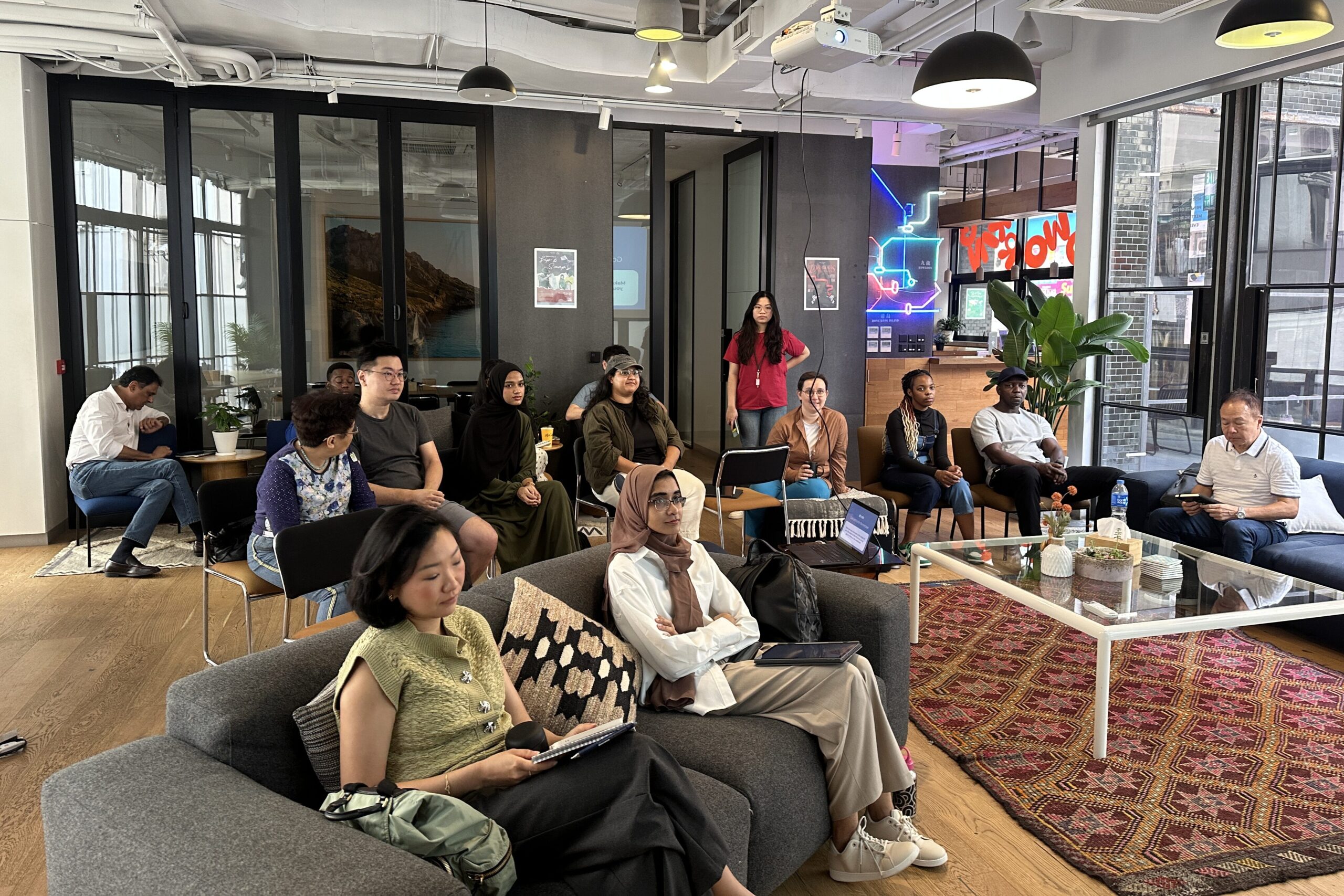
Starting a Social Impact Business
Vivian Seo, FSI’s Executive Director, and Adnan led a session where participants shared their answers to the question, “How can we start a social impact business?” Participants shared plenty of ideas, including identifying the business’ nature and mission, developing marketing strategies, and setting customer service standards. The entrepreneurs agreed that accounting, managing contracts, and navigating legal matters were less enjoyable, but recognized their essential roles in running a successful business.
“Before you set up a business, it’s important to have a value proposition,” added Vivek Kumar, FSI’s Board Advisor and a seasoned financial industry executive with extensive regional experience in the SME and enterprise eco-system space. “Business plans are fundamentally very important, along with conducting a potential problem analysis. It’s crucial to configure the things that could go wrong.”
Backward Goal-Setting and Mentor-Mentee Discussion
So, how does one go about setting goals for their business? The first step is to identify the long-term vision and mission of the business, followed by determining the milestones needed to get there. For the one-hour session that followed, the mentor-mentee pairs dived into backward goal-setting and listed the most urgent tasks that needed to be completed during the program period to reach those milestones.
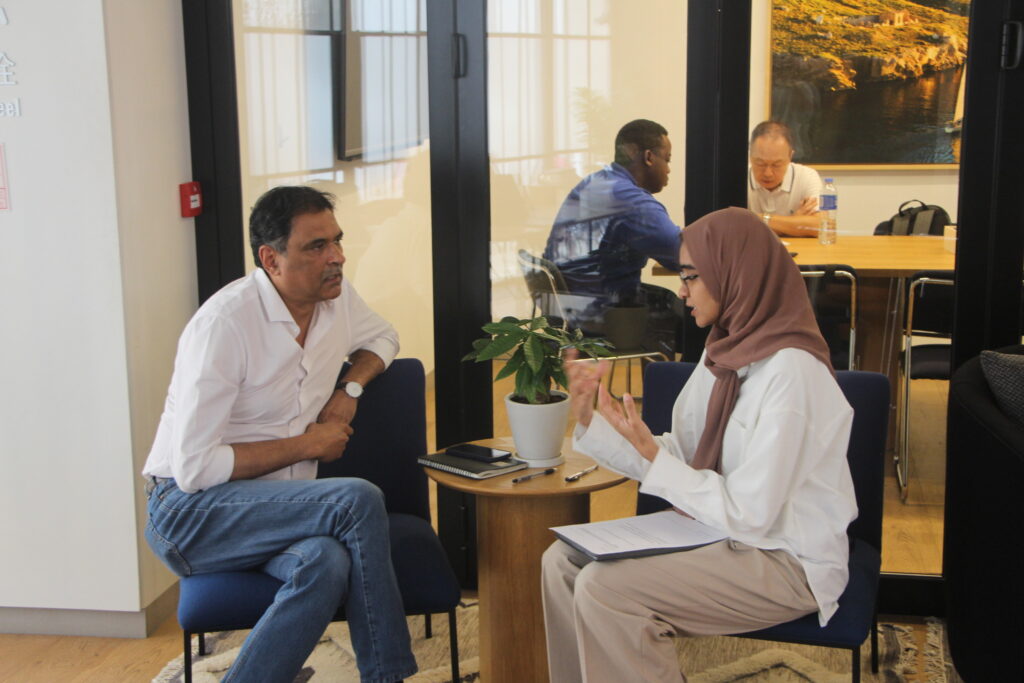
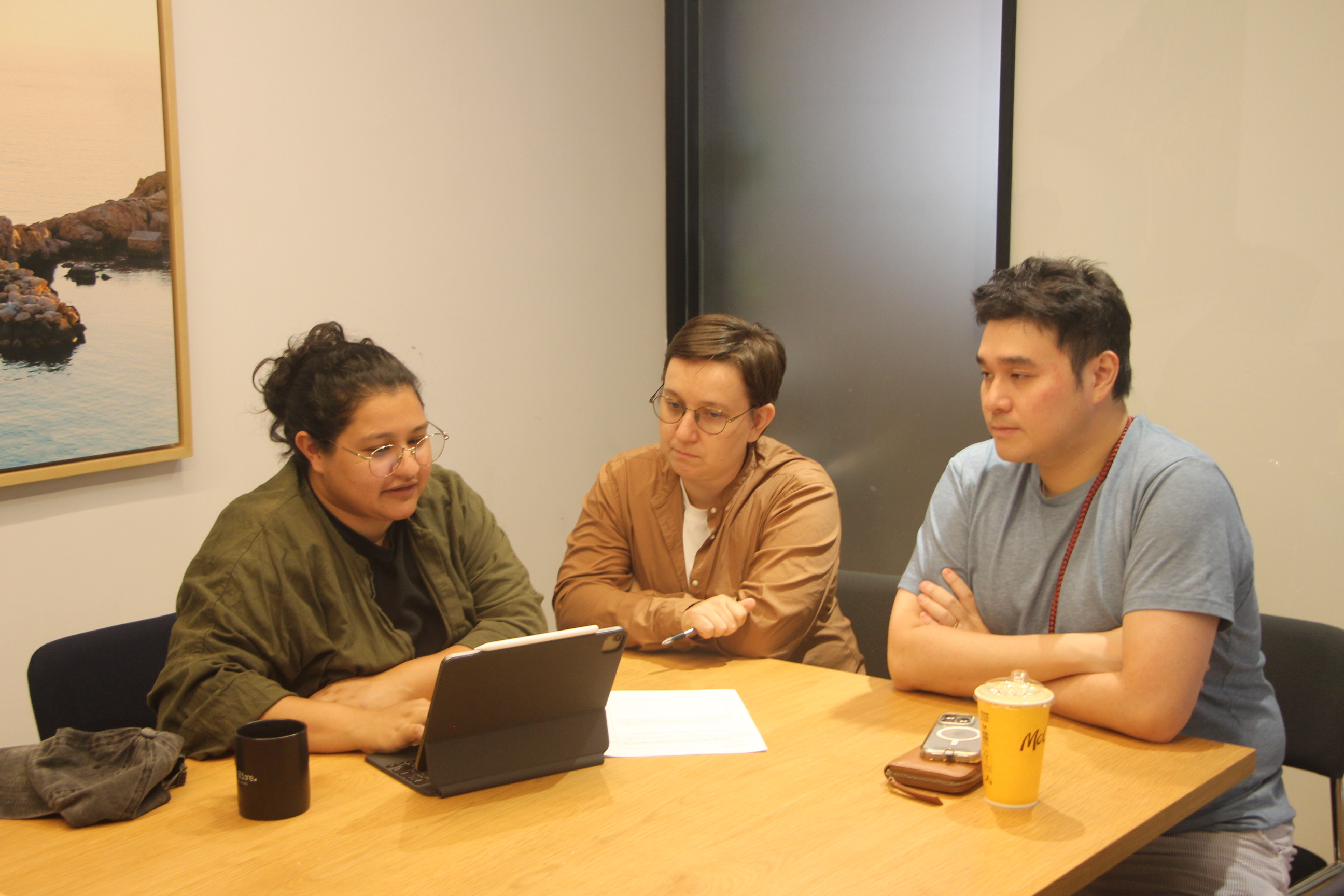
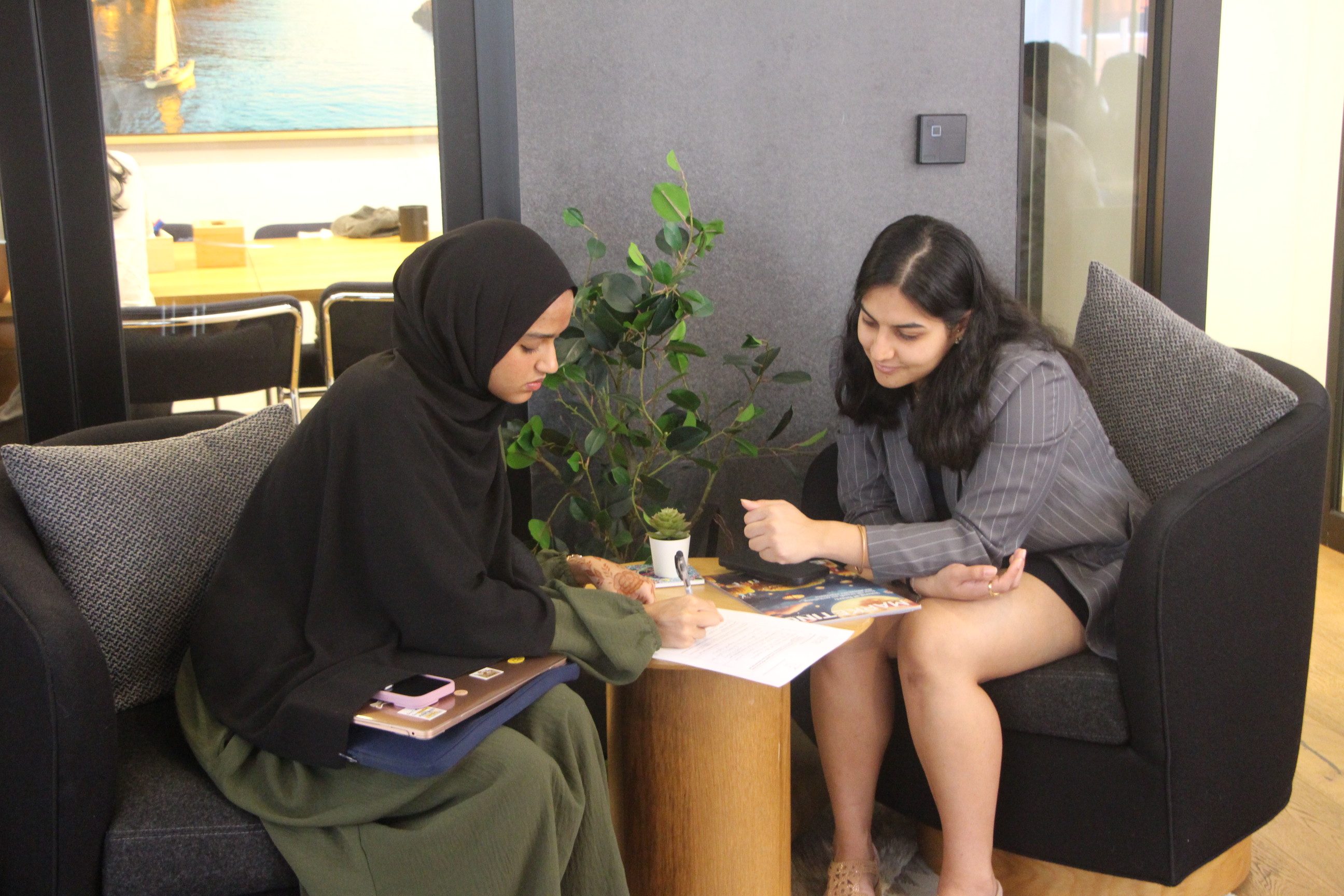
Tinotenda Muzariri, Business Development and Marketing Manager at Africa Center Hong Kong, said his priority for the next six months would be to establish core business values and a positive work culture. “I think by starting off with this, we can ensure that our team members are on the same page and can work on achieving the same things,” he said to his mentor, Robin Wong, owner of Bizwiz Partnership Ltd. “People can list the values, but what do they really mean? I think these are not as well established as they should be.”
Emeline and Sneha from A Collective Space were able to identify several measurable goals for the Mentorship Program period. To kick off their discussion on these goals, their mentor, Henry Yeung, Partner at Carys Limited and a mentor to The Blomstre, former-mentee-turned-mentor for the 2024-25 program, provided an example: “As we previously discussed, a workshop in the city center can be a good milestone. This, together with other milestones, will get you from A to B in your entrepreneurial journey.” Resulting from the discussion are these goals: reaching 2,000 followers on A Collective Space’s Instagram, joining two speaking events each month, and conducting two workshops in schools.
For Karl Baboucarr Sarr, a budding entrepreneur from Gambia who helps Hong Kong car owners find new homes for their used vehicles in Africa through Karl Auto Parts Company, Innocent Mutunga, Founder and Director of Africa Center Hong Kong and Karl’s mentor, suggested these goals: hiring five full-time employees and acquiring two minibuses for logistics in Gambia, as well as two full-time employees in Hong Kong. They also took time to consider the social norms in Gambia and the challenges of achieving inclusive employment.
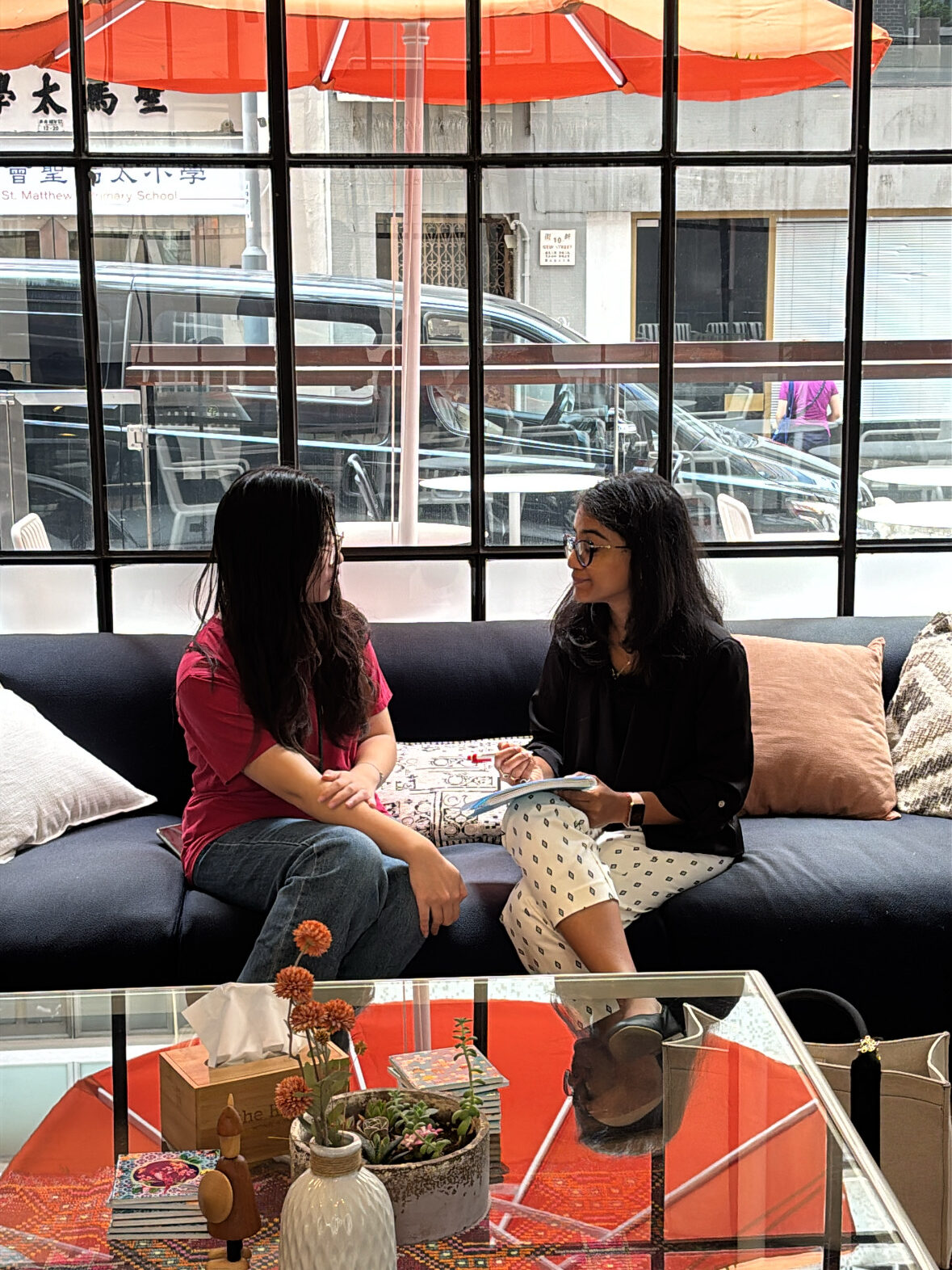
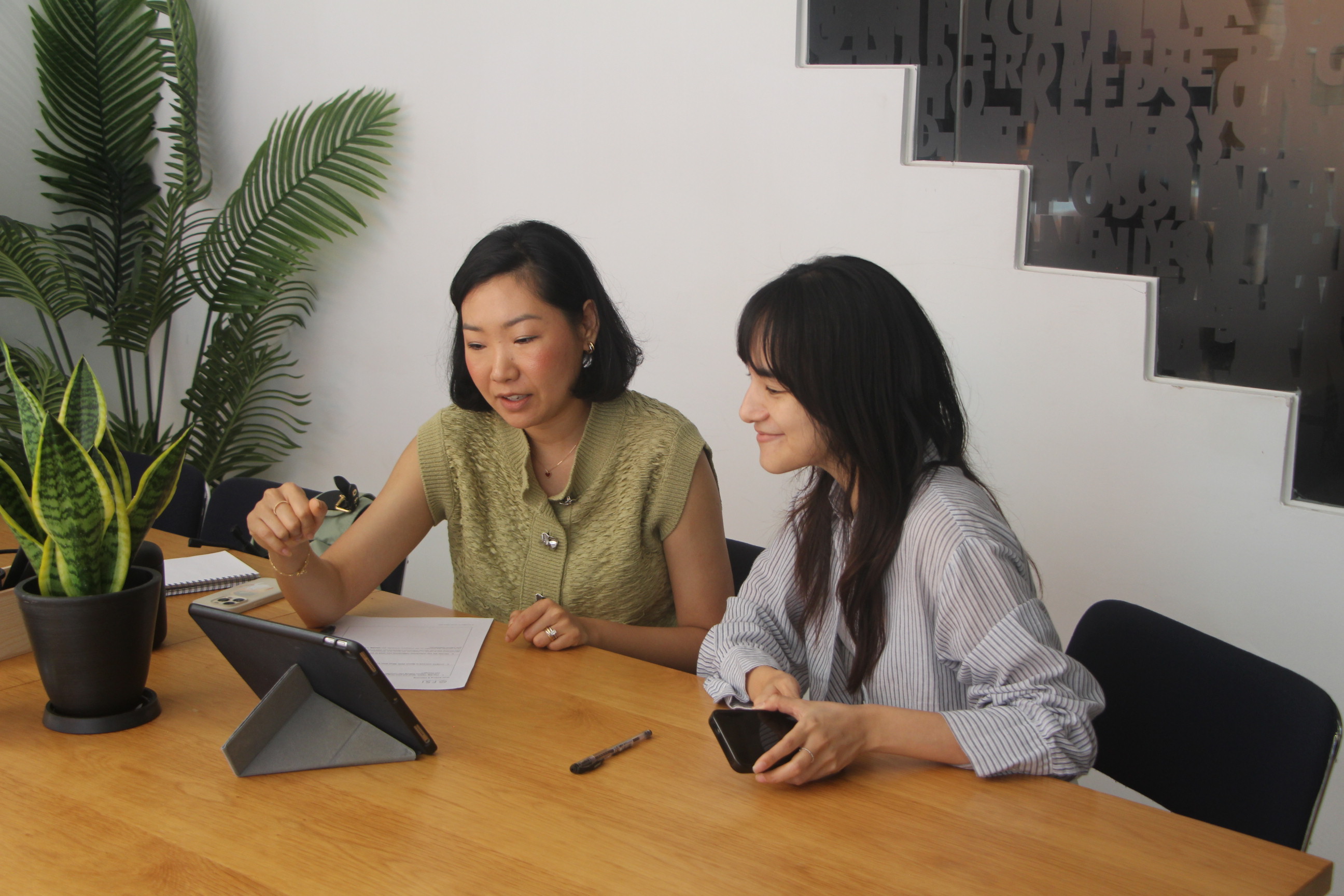
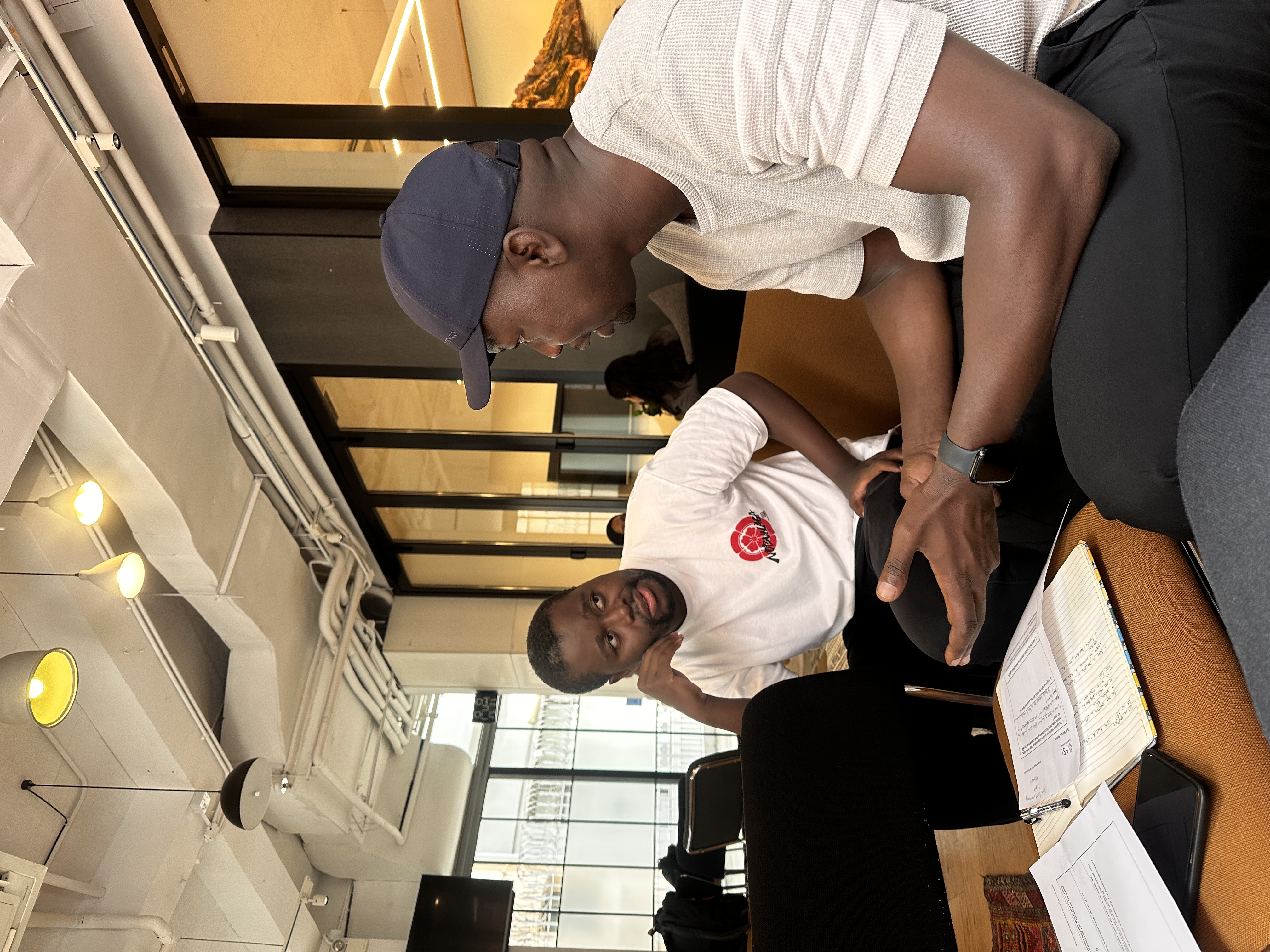
What’s Next?
At the end of the goal-setting workshop, the mentor-mentee pairs shared the summary of their discussions in the cohort WhatsApp group to highlight key outcomes and keep each other accountable for the journey ahead. Participants were reminded once again to freely access the practical guides and templates available in FSI’s Entrepreneur’s Toolkit and the bespoke direct business support offered by the FSI team and student interns.
The next workshop will be on Branding and Marketing, on 19 October. We will invite key opinion leaders to share their insights and expertise on content creation, with a focus on LinkedIn and Instagram. There will also be an interactive session where mentees can create actual content using media files they already have. Stay tuned for the highlights of the next workshop!
We would like to thank the Hive Poho for being our program’s venue partner, and the Impact Lab Course interns for supporting event coordination and coverage.
Our annual Mentorship Program wouldn’t have been possible for the third year running without the long-time support of The Hong Kong Club Foundation, ICF Hong Kong Charter Chapter, Africa Center Hong Kong, and FundFluent. If you would like to support our work in empowering under-resourced entrepreneurs, email us at cbs@shared-impact.com!
*This blog post was drafted by Hyewon Lee, Communications and Marketing intern at the Foundation for Shared Impact (FSI) during the Fall 2024 semester of the Impact Lab Course.



